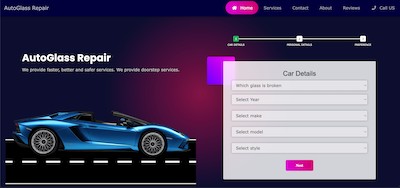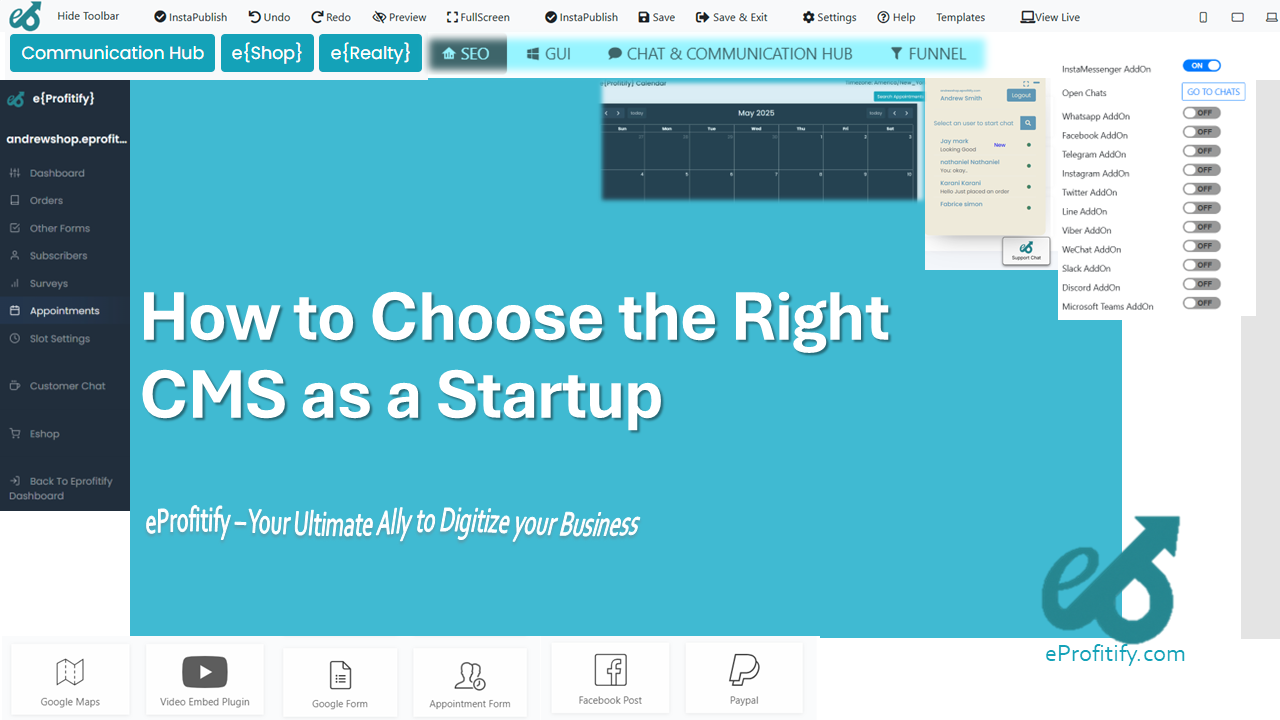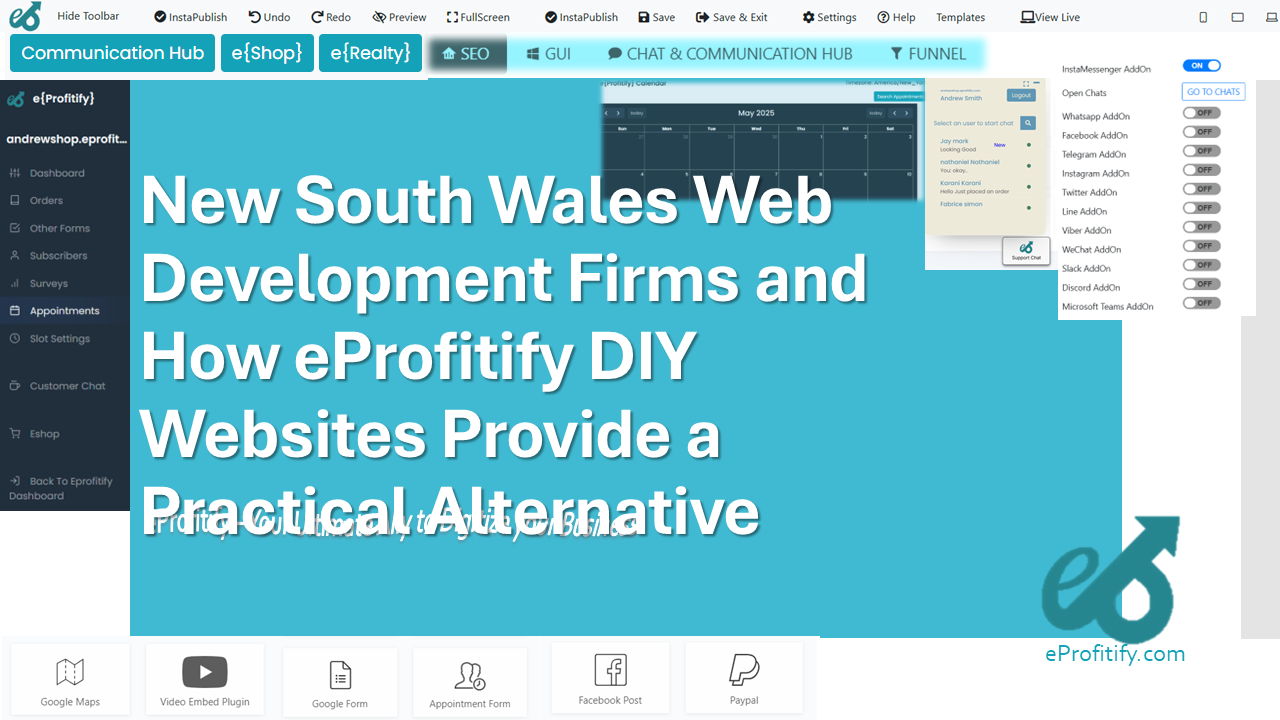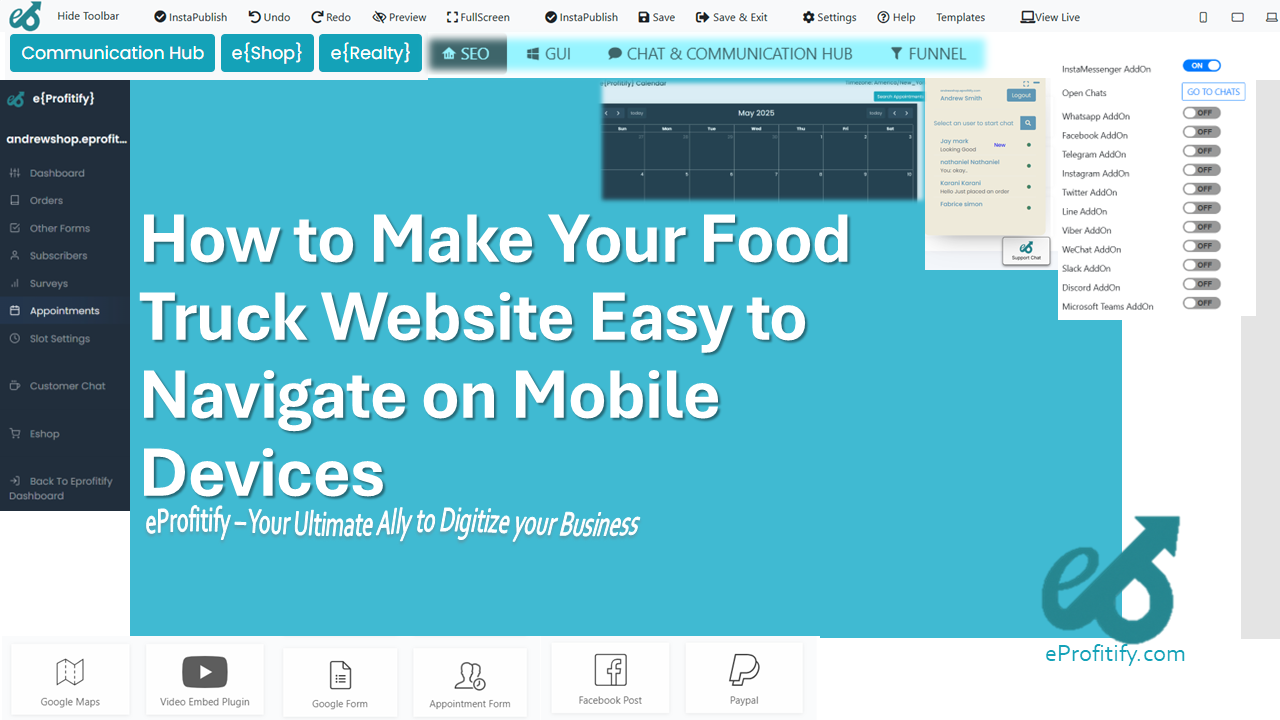How to Leverage Data Analytics to Grow Your Food Truck Business
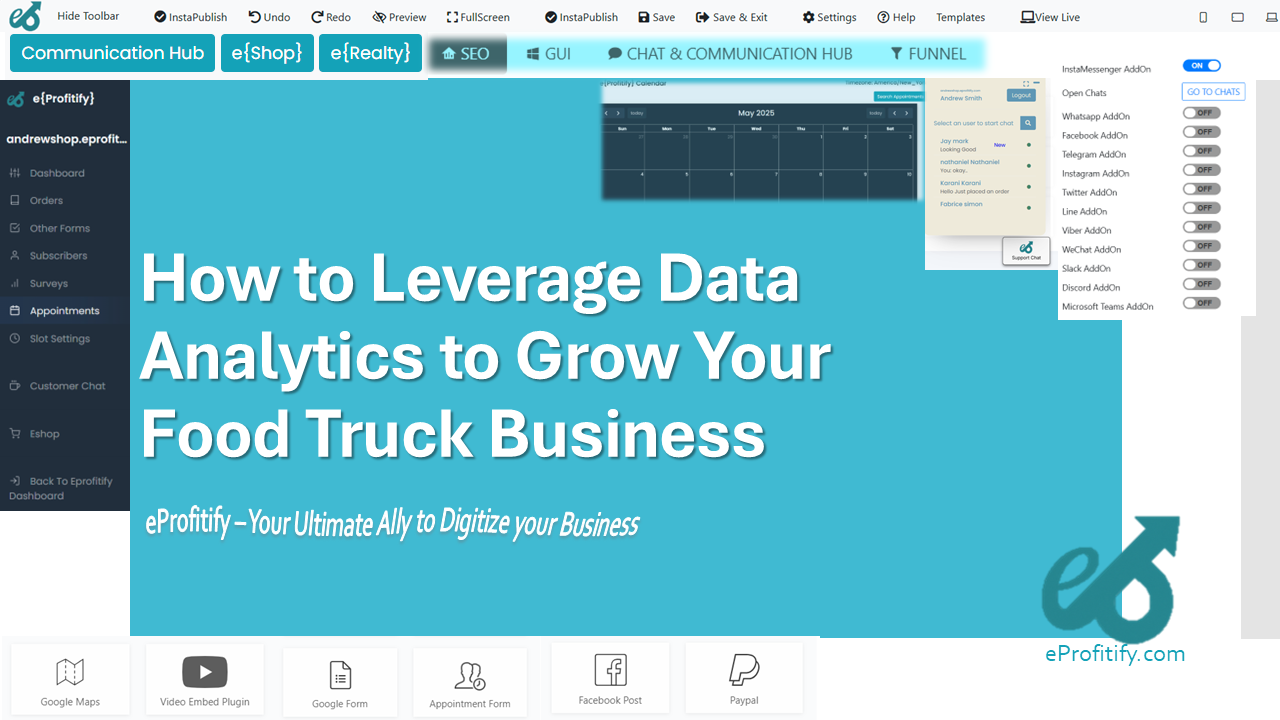
Schedule a LIVE Zoom call with an eProfitify Expert.
How to Leverage Data Analytics to Grow Your Food Truck Business
The food truck industry has exploded in recent years, becoming a dynamic segment of the culinary world. In the U.S. alone, the industry was valued at $1.2 billion in 2022, with a compounded annual growth rate (CAGR) of 6.3% (IBISWorld, 2023). However, this growth has intensified competition, making it crucial for businesses to adopt innovative strategies. Data analytics offers a powerful way to stand out by optimizing operations, understanding customers, and boosting profitability. Coupled with tools like eprofitify—a leading website publishing and management platform—food truck owners can streamline workflows, enhance customer relationships, and drive growth.
1. Understanding Customer Preferences
Data analytics enables food trucks to uncover insights into customer behavior, preferences, and spending patterns. For instance, POS systems and online ordering platforms track which menu items are popular, peak sales times, and repeat customer habits. According to McKinsey, businesses that leverage customer analytics report a 10–15% increase in revenue through personalized experiences.
Social media platforms also provide rich data. By analyzing engagement metrics (likes, shares, comments), food trucks can identify trending flavors or dishes. A survey by Toast found that 54% of food truck owners rely on social media as their primary marketing tool. Tools like eprofitify integrate social media analytics, allowing owners to track campaigns in real time and adjust strategies dynamically. Its CRM feature further segments customers based on purchase history, enabling targeted promotions via email or SMS.
2. Optimizing Location Strategy
Location is critical for food truck success. Data on foot traffic, local events, and weather conditions can guide where and when to park. For example, food trucks using GPS and foot traffic analytics often see a 20–30% sales boost by targeting high-density areas during events or lunch rushes.
eprofitify’s appointment management system simplifies scheduling by correlating historical sales data with event calendars. This ensures trucks operate at festivals, corporate parks, or sports venues when demand peaks. Additionally, its instant messaging feature allows real-time communication with event organizers, fostering partnerships.
3. Streamlining Menu Offerings
Menu optimization is another area where data shines. By analyzing sales data, food trucks can identify top-performing items (the “80/20 rule,” where 20% of items generate 80% of profits) and phase out underperformers. Seasonal trends and ingredient costs can also inform menu adjustments. A/B testing, such as offering combo deals or limited-time specials, helps refine offerings.
With eprofitify’s ecommerce integration, food trucks can test digital menus and track click-through rates. This data reveals which items attract clicks versus actual purchases, enabling smarter menu design. Inventory management tools sync with sales data to predict ingredient needs, reducing waste.
4. Managing Inventory Efficiently
The USDA estimates that restaurants waste 30–40% of their food supply annually. For food trucks operating on tight margins, overstocking or spoilage can erode profits. Data analytics forecasts demand, ensuring optimal stock levels. For example, sales spikes on Fridays might require ordering 25% more ingredients for weekend shifts.
eprofitify’s inventory management system automates this process by linking POS data with supplier orders. Low-stock alerts and waste tracking further minimize costs, redirecting savings toward growth initiatives.
5. Enhancing Marketing Efforts
Targeted marketing yields higher ROI. Email campaigns personalized to customer preferences achieve 29% higher open rates and 41% more click-throughs (Campaign Monitor, 2023). Loyalty programs, informed by purchase history, increase retention by 5% and profits by 25–95% (Harvard Business Review).
eprofitify’s CRM centralizes customer data, enabling segmented email campaigns and loyalty rewards. Its analytics dashboard tracks campaign performance, while integrated social media tools amplify reach.
6. The Role of eprofitify: Your All-in-One Growth Partner
eprofitify distinguishes itself as a comprehensive platform tailored for small businesses like food trucks. Key features include:
- Instant Messaging: Engage customers via SMS or chat, addressing feedback instantly.
- Appointment Management: Schedule events and catering gigs with automated reminders.
- Ecommerce Integration: Accept online orders and payments, capturing valuable sales data.
- CRM: Track customer interactions and automate personalized marketing.
- Analytics Dashboard: Visualize sales trends, inventory levels, and campaign ROI in one place.
Businesses using integrated tools like eprofitify report up to 30% improvements in operational efficiency and 20% faster customer response times.
Conclusion
In a competitive landscape, data analytics transforms food trucks from guesswork-driven ventures into precision-operated businesses. By harnessing customer insights, optimizing locations, refining menus, and deploying targeted marketing, owners can significantly boost profitability. Platforms like eprofitify amplify these benefits by offering seamless tools for analytics, customer engagement, and operations.
Food truck entrepreneurs ready to embrace data-driven strategies will not only survive but thrive. Start leveraging analytics today—and let eprofitify handle the heavy lifting.
Statistics Sources:
- IBISWorld (2023), McKinsey & Company, Campaign Monitor (2023), Harvard Business Review.

